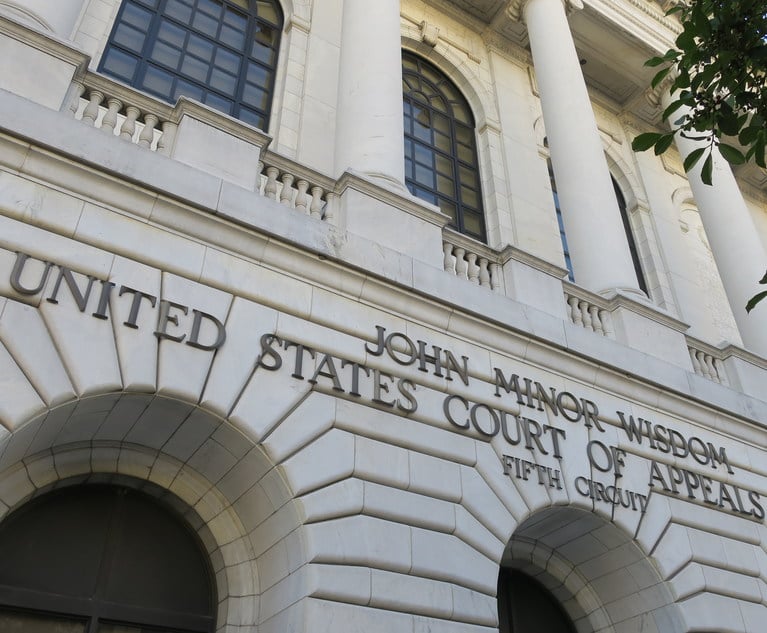 Richard Hughes Justice Complex, in Trenton, New Jersey. Photo: Carmen Natale/ALM
Richard Hughes Justice Complex, in Trenton, New Jersey. Photo: Carmen Natale/ALM Time to Avoid Supreme Court Decisions Based on an Equally Divided Court
The senior Appellate Division judge available to sit as the seventh member of the court should be assigned when only six justices would otherwise be sitting on an appeal.
October 30, 2021 at 03:49 PM
3 minute read
Article VI, section II, paragraph 1 of the New Jersey Constitution provides that "…Five members of the court shall constitute a quorum. When necessary, the Chief Justice shall assign the Judge or Judges of the Superior Court, senior in service, as provided by rules of the Supreme Court, to serve temporarily in the Supreme Court." The implementing rule, R.2:13-2(a), provides "Five members of the court shall constitute a quorum. When necessary to constitute a quorum, to replace a justice who is absent or unable to act, or to expedite the business of the court, the presiding justice may assign one or more retired justices of the Supreme Court who are not engaged in the practice of law and who consent thereto or the judge or judges of the Appellate Division, senior in length of service therein, to serve temporarily in the Supreme Court."
In Henry v. Department of Human Services, 204 N.J. 320 (2010), the court upheld the longstanding practice that the senior Appellate Division judge or judges can be temporary assigned to the Supreme Court "when necessary" and that such power can be exercised when necessary even when a quorum otherwise exists. As the chief justice wrote in his separate opinion in Henry:
This content has been archived. It is available through our partners, LexisNexis® and Bloomberg Law.
To view this content, please continue to their sites.
Not a Lexis Subscriber?
Subscribe Now
Not a Bloomberg Law Subscriber?
Subscribe Now
NOT FOR REPRINT
© 2025 ALM Global, LLC, All Rights Reserved. Request academic re-use from www.copyright.com. All other uses, submit a request to [email protected]. For more information visit Asset & Logo Licensing.
You Might Like
View All
Legal Issues to Watch in the US Appeals Courts in 2025


'Point Us to the Plain Language': NJ Supreme Court Grills Defense Statutory Requirements for Affidavit of Merit
5 minute read
3rd Circuit Judges Zero In on Constitutional Challenges to Medicare Drug Pricing Program
Trending Stories
- 1Troutman Pepper, Claiming Ex-Associate's Firing Was Performance Related, Seeks Summary Judgment in Discrimination Suit
- 2Law Firm Fails to Get Punitive Damages From Ex-Client
- 3Over 700 Residents Near 2023 Derailment Sue Norfolk for More Damages
- 4Decision of the Day: Judge Sanctions Attorney for 'Frivolously' Claiming All Nine Personal Injury Categories in Motor Vehicle Case
- 5Second Judge Blocks Trump Federal Funding Freeze
Who Got The Work
J. Brugh Lower of Gibbons has entered an appearance for industrial equipment supplier Devco Corporation in a pending trademark infringement lawsuit. The suit, accusing the defendant of selling knock-off Graco products, was filed Dec. 18 in New Jersey District Court by Rivkin Radler on behalf of Graco Inc. and Graco Minnesota. The case, assigned to U.S. District Judge Zahid N. Quraishi, is 3:24-cv-11294, Graco Inc. et al v. Devco Corporation.
Who Got The Work
Rebecca Maller-Stein and Kent A. Yalowitz of Arnold & Porter Kaye Scholer have entered their appearances for Hanaco Venture Capital and its executives, Lior Prosor and David Frankel, in a pending securities lawsuit. The action, filed on Dec. 24 in New York Southern District Court by Zell, Aron & Co. on behalf of Goldeneye Advisors, accuses the defendants of negligently and fraudulently managing the plaintiff's $1 million investment. The case, assigned to U.S. District Judge Vernon S. Broderick, is 1:24-cv-09918, Goldeneye Advisors, LLC v. Hanaco Venture Capital, Ltd. et al.
Who Got The Work
Attorneys from A&O Shearman has stepped in as defense counsel for Toronto-Dominion Bank and other defendants in a pending securities class action. The suit, filed Dec. 11 in New York Southern District Court by Bleichmar Fonti & Auld, accuses the defendants of concealing the bank's 'pervasive' deficiencies in regards to its compliance with the Bank Secrecy Act and the quality of its anti-money laundering controls. The case, assigned to U.S. District Judge Arun Subramanian, is 1:24-cv-09445, Gonzalez v. The Toronto-Dominion Bank et al.
Who Got The Work
Crown Castle International, a Pennsylvania company providing shared communications infrastructure, has turned to Luke D. Wolf of Gordon Rees Scully Mansukhani to fend off a pending breach-of-contract lawsuit. The court action, filed Nov. 25 in Michigan Eastern District Court by Hooper Hathaway PC on behalf of The Town Residences LLC, accuses Crown Castle of failing to transfer approximately $30,000 in utility payments from T-Mobile in breach of a roof-top lease and assignment agreement. The case, assigned to U.S. District Judge Susan K. Declercq, is 2:24-cv-13131, The Town Residences LLC v. T-Mobile US, Inc. et al.
Who Got The Work
Wilfred P. Coronato and Daniel M. Schwartz of McCarter & English have stepped in as defense counsel to Electrolux Home Products Inc. in a pending product liability lawsuit. The court action, filed Nov. 26 in New York Eastern District Court by Poulos Lopiccolo PC and Nagel Rice LLP on behalf of David Stern, alleges that the defendant's refrigerators’ drawers and shelving repeatedly break and fall apart within months after purchase. The case, assigned to U.S. District Judge Joan M. Azrack, is 2:24-cv-08204, Stern v. Electrolux Home Products, Inc.
Featured Firms
Law Offices of Gary Martin Hays & Associates, P.C.
(470) 294-1674
Law Offices of Mark E. Salomone
(857) 444-6468
Smith & Hassler
(713) 739-1250






